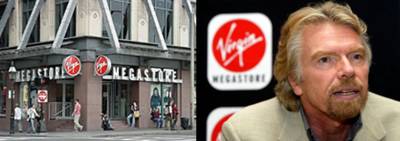Fame and Scope of "VIRGIN" Mark Yields 2(d) Opposition Victory over Auto Dealer
Finding the VIRGIN mark to be famous for Section 2(d) purposes, the Board sustained three Section 2(d) oppositions to registration of the marks VIRGIN VEHICLES, VIRGIN SALE, and VIRGIN PURCHASE for "automobile and truck dealerships." Virgin Enterprises Ltd. v. Albion Motors Ford Mercury, Inc., Oppositions Nos. 91153575, 91153612, and 91154161 (August 10, 2007) [not precedential].

The Board spent the first quarter of its 57-page decision reviewing and ruling upon various evidentiary and procedural objections. Applicant managed to gain a few moral victories, like limiting the Board's consideration to the 18 registration pleaded by Virgin, jettisoning several UK publications as irrelevant, and blocking an exhibit as to which Virgin had failed to furnish a copy.
Turning to the merits, the Board first noted that "the scope and importance" of Virgin's 18 registrations "cannot be underestimated." [TTABlog suggestion: perhaps the Board meant "overestimated"?]. The registrations cover a "significant number of variations on the VIRGIN marks" and include a "vast variety of goods and services ... "ranging from transportation and travel, to bar services, to communication services, to online sales and retail store services for a wide variety of goods."
Richard Branson and his Virgin companies have attracted "significant attention." Opposer's airline services have been "significant in terms of both length of service, revenue and number of passengers carried." The Virgin Group has also sold "significant numbers" of musical recordings and has operated its retail stores in some 20 major U.S. cities, including in New York City's Times Square. Its sales at retail and online are substantial, as are its advertising efforts. Opposer's use of the VIRGIN mark with communications services has also been extensive. Opposer's advertising and promotional efforts have brought "a widespread awareness of the VIRGIN marks."

Applicant Albion Motors uses its marks in connection with "custom ordered vehicles," with the word "virgin" referring to "the newness, purity, first-time element."
The Board began its du Pont discussion with a finding that Virgin established "significant fame" for Section 2(d) purposes as to airline services, communications, and retail and online store services. [The Board declined to decide whether the VIRGIN mark are famous for dilution purposes and, in light of its ruling on likelihood of confusion, declined to deal with Virgin's dilution claim at all.] Applicant objected to the Board's consideration of evidence of fame relating to the period after the filing of its applications, but the Board pointed out that the objection might be proper in a dilution context, but not on a Section 2(d) claim. In short, the Board ruled that Virgin is entitled to "a significantly broader scope of protection that would otherwise apply to its VIRGIN marks."
Turning to the marks, the Board determined that Opposer failed to prove its claim to a family of VIRGIN marks. Instead, the Board looked at the individual marks, noting, however, that ten of the 18 registrations are for the word VIRGIN alone or in stylized script, and those ten cover "substantially all of the significant goods and services covered by the eighteen registrations." Focusing on those ten registrations, the Board then pointed out that the dominant element in Applicant's marks is the word VIRGIN. The Board therefore found that this factor favored Opposer.
Applicant's third-party registration evidence for marks including the word VIRGIN failed to make a dent in the strength of Opposer's marks.
As to the goods and services, the Board found the parties services to be related "in view of the wide variety of goods and services identified in opposer's registrations and the fame of the VIRGIN mark. "We might reach a different conclusion if we looked at each of opposer's goods and services in isolation in relation to applicant's services." But the "circumstances surrounding the marketing of opposer's goods and services when viewed as a whole ... lead us to conclude that relevant purchasers would perceive that the goods and services of the parties are related."
Based on the same analysis, the Board found the channels of trade to be related. And although automobiles and trucks would be purchased with care, "[e]ven sophisticated purchasers are not immune from trademark confusion." The Board therefore deemed this factor to be neutral.
Considering all of the factors, the Board found confusion likely and it sustained the opposition.
TTABlog comment: As noted, the Board declined to reach the dilution claim. Nonetheless, Virgin obtained dilution-like protection without having to meet the higher fame standard and without having to show that the marks in question are substantially identical.
Text Copyright John L. Welch 2007.




0 Comments:
Post a Comment
<< Home